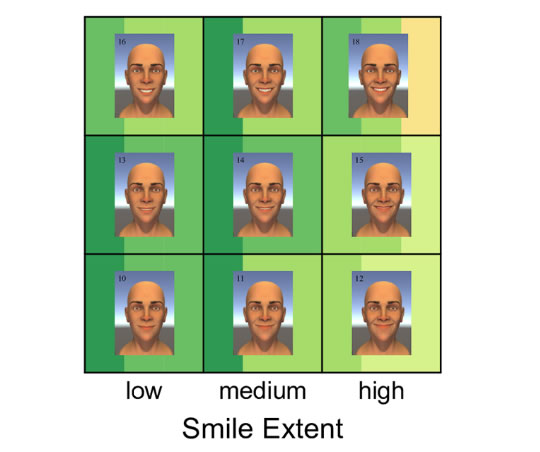The most genuine and pleasant type of smile might surprise you.
When it comes to a successful smile, less is more, new research finds.
The most effective, successful and pleasant smile doesn’t show too much of the teeth.
It is a medium or low wattage smile.
Certainly, it is not true that the bigger the smile, the better it is, as the study’s authors explain:
“…the optimal window (or sweet spot) of smile extent contradicts the principle that “more is always better” with respect to smile extent.”
The image below shows some of the different types of smiles they tested.

The smiles with more green around them are the ones rated most successful.
You can see that 13, 14 and 10 have the most green around them, so are the most successful.
All three successful smiles are relatively low in extent: they are not big smiles.
Showing too many teeth can even cause the facial expression to send a message you might not intend:
“…forming open-mouth smiles with small angles/extents can produce unintended perceptions of the expression, e.g., contempt or fear instead of happiness.”
Here, for those of you of a technical bent, are the exact scientific characteristics of a successful smile:
“…we found that a successful smile consists of (i) an optimal window of mouth angle and smile extent, (ii) the correct amount of dental show for the given angle-extent combination, and (iii) dynamic symmetry such that the left and right sides of the mouth are temporally synced within 125 ms.”
Now off to your mirrors and practice!
The study was published in the journal PLOS ONE (Helwig et al., 2017).
Image credit: greekadman
